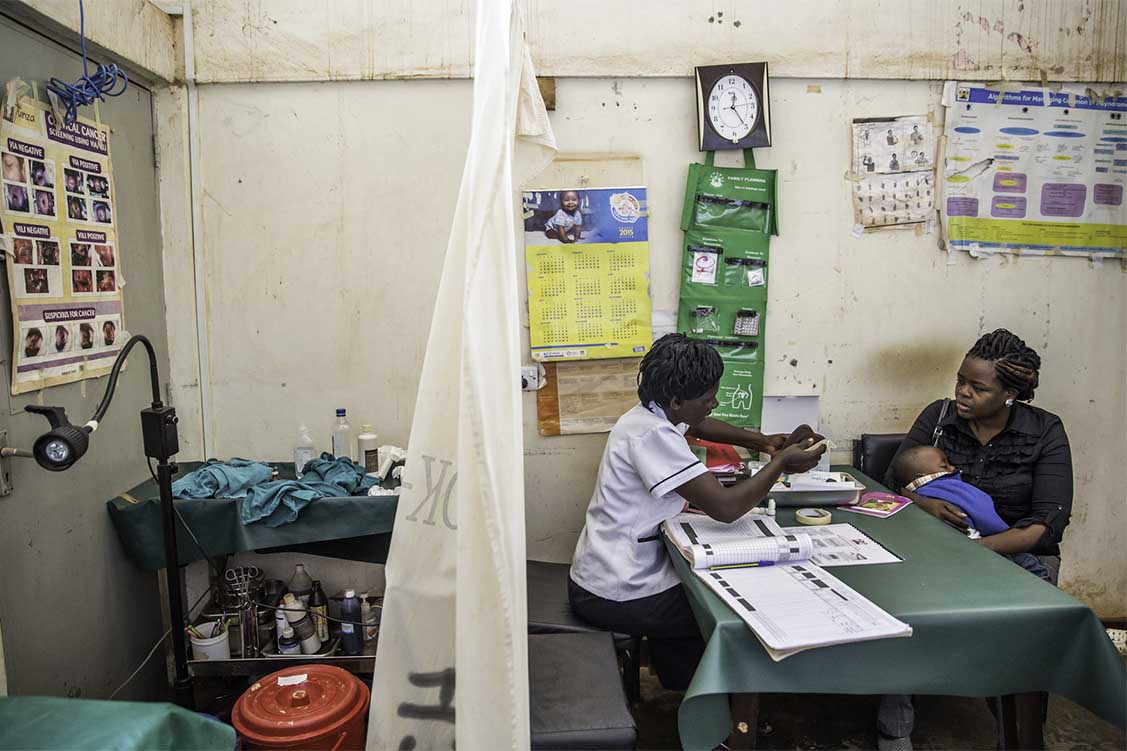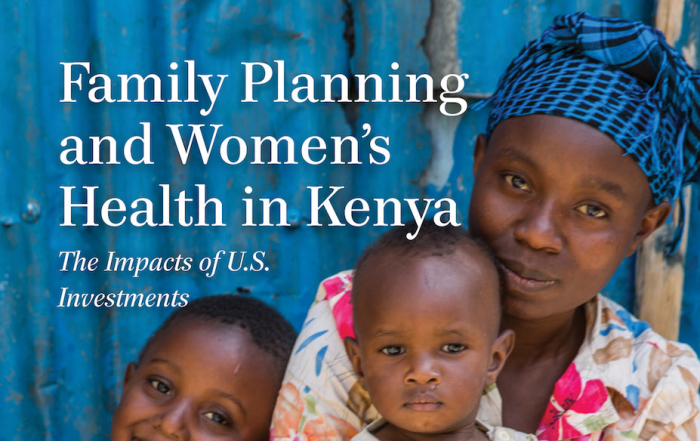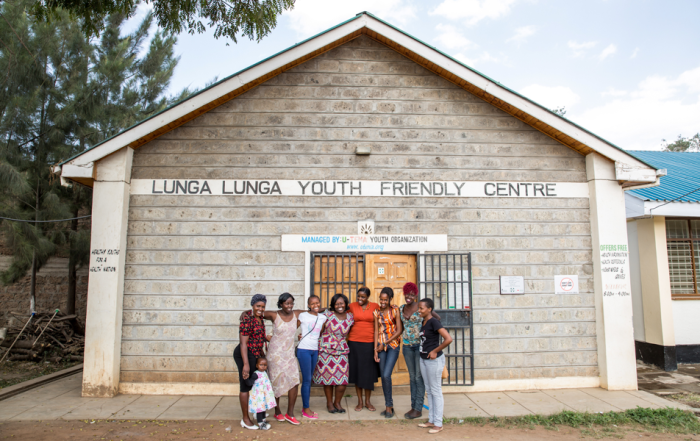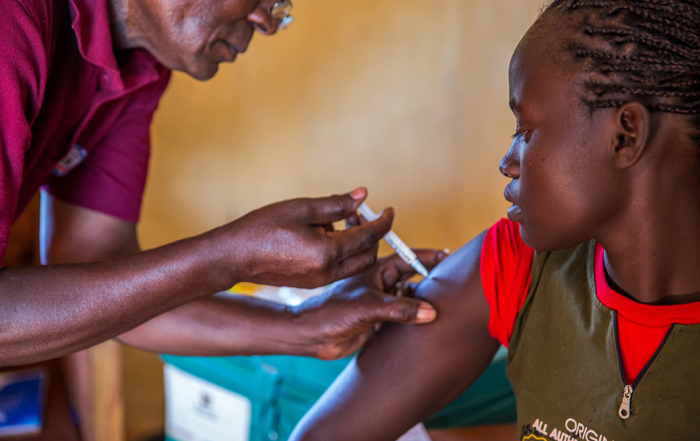The United States and Kenya have a strong bilateral relationship, signaled most recently by President Obama’s visit in July 2015. The United States invests heavily in the health of the Kenyan people; most significantly, Kenya is a focus country for the flagship U.S. HIV/AIDS program, PEPFAR. The United States budgeted over $580m for Kenyan health programs in 2015, totaling nearly 90 percent of its foreign assistance to Kenya (the vast majority of which is for PEPFAR). These contributions have helped to improve the health of all Kenyans, including millions of women and children.
Kenya is also priority country for USAID’s family planning and maternal-child health programs. Voluntary family planning is one of the most transformative interventions in global health, critical to improving women’s health and to saving the lives of women and children in some of the world’s most vulnerable communities. Family planning is also essential for women’s empowerment and sustainable development. The United States has a vital role to play in helping Kenya improve the lives of women and families.
“Family planning is the core of women’s health. You cannot tell me you are investing in economic growth in Kenya if you’re not investing in women’s health.”
–Dr. Nicholas Muraguri, Director of Medical Services, Kenyan Ministry of Health, Nairobi, September 11, 2015
This is a pivotal moment for U.S. health investments in Kenya. Changes in PEPFAR strategy present challenges for the scale and sustainability of integrating family planning and maternal-child health with HIV services. Recent sweeping political reforms have decentralized health services to the county level, presenting new challenges and opportunities for access to quality care and family planning. As the U.S. and other partners look to reduce their overall investments as Kenya moves towards middle-income status, new financing mechanisms are encouraging the national government to commit more of its own resources to health.

Photo credit: Sala Lewis
Throughout these challenging transitions in the United States-Kenya relationship around health, sustained U.S. support for voluntary family planning information and services is particularly important. By working with Kenya to increase access to voluntary family planning services, the United States can:
-
Save lives. Simply put, providing women with access to family planning information and services is a cost-effective way of saving lives. The Kenyan Ministry of Health estimates that increasing the country’s rate of contraception use from 58% to almost 65% by 2020 would save the lives of 20,000 women and 144,000 children, as well as avoid 7.7 million unintended pregnancies and 1.4 million unsafe abortions.
-
Empower women and girls. Being able to control the number, timing, and spacing of pregnancies allows women and girls to stay in school and participate in the work force. In Kenya, nearly half of teenage pregnancies are unintended, and pregnancy is a primary cause of school drop-outs and early marriage. Access to family planning is a key component of effectively promoting the rights of women and girls and enabling them to control their own destinies.
-
Promote economic growth and stability. In Kenya, two-thirds of the population is currently under the age of 30. Voluntary family planning can be an important contributor to economic productivity, by ensuring that there is adequate education and employment to meet the needs of this growing youth population. Kenya’s prospects of becoming a middle-income country will be improved if it expands access to family planning, reduces fertility rates, and establishes strong economic policies. Policies such as these were pursued by Asian countries such as South Korea and Singapore, which have experienced remarkable economic growth.

Photo credit: Sala Lewis
With all this at stake, what can the United States do?
-
Ensure that changes in PEPFAR’s focus and resources do not negatively impact family planning services. The integration of family planning programs with other health services, most notably HIV/AIDS prevention and treatment programs through PEPFAR, has successfully brought family planning services to women who previously lacked access. The United States should ensure that changes to PEPFAR do not lead to a loss of family planning services for women who need them.
-
Help the Kenyan government to budget adequate resources and build local capacity to increase access to family planning services. The recent decentralization of Kenya’s health governance means that both county and national governments face new opportunities and challenges in funding and delivering family planning services. The U.S. has substantial technical expertise that can help the Kenyans ensure that these changes can benefit the women and families who rely on these essential services, and reach those with unmet need for family planning, including adolescent girls and young women, and the urban and rural poor.
-
Work with Kenya and the international community to build sustainable funding mechanisms for family planning. The creation of the Global Financing Facility for Reproductive, Maternal, Newborn, Child, and Adolescent Health is a potential opportunity for the international community to collectively support access to voluntary family planning services. The growth of private sector investment is also an opportunity to expand access. The United States should use its diplomatic strength and global health leadership to work with donor countries, the private sector, and other partners to build toward sustainable financing for family planning services.
TO READ THE REPORT, CLICK HERE.








